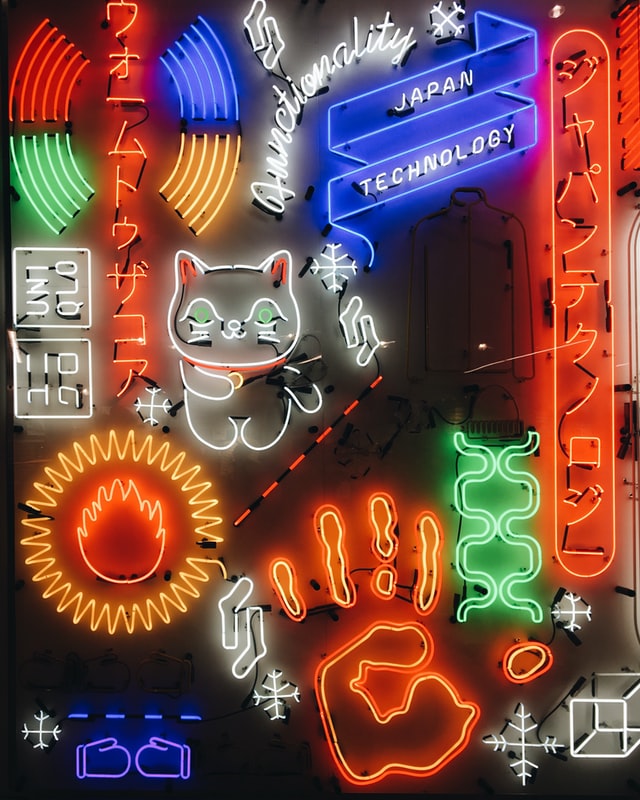Five Common Misconceptions About The Japanese

For outsiders, the Japanese are among the most misunderstood people in the world. There are many myths and misconceptions about who the Japanese are — that they are distinctly different from all others. To some extent, the Japanese
themselves are to blame, maintaining a face to the rest of the world that has hidden their true nature and preserving a mystique that protected the country for centuries. Here are five of the most commonly held misconceptions
about the Japanese of today that will surprise many.
1) Japan should have the highest productivity in the world, given their long working hours, dedication to their company and their large tech sector.
It is always a surprise to a foreign businessman arriving in Japan that Japanese business is antiquated compared to modern business practices. Productivity gains are surprisingly low, and office digitalisation poor.
From the outside Japan is perceived as a modern forward-thinking society, but this is far from the truth.
Long hours and punctuality are more about good “impression management”– proving your dedication to the team and company is paramount to ensure long term job security and corporate advancement. How much useful work is actually
undertaken during these hours is often debatable. Endless meetings to reach consensus stifle productivity. The majority of businesses still operate on paper-based administration, even though computers may be sitting on desks!
Salarymen in big, traditional companies are rarely promoted based on achievement, because length of service and age are the determinants of seniority. It goes hand-in-hand with the Japanese lifetime employment system – the higher
they climb the company ladder the less they do, but the more pressure they put on their subordinates, and the less efficient they become in terms of productivity. These long-established work practices are slowly but surely
seen as barriers to further increases in corporate productivity and Japan’s future success. It is an awakening to any overseas businessperson when they discover the truth behind Japan’s corporate mask.
2) The Japanese are artisans who wish to achieve the heights of perfectionism in art and in everything they do.
In Japan, relationships between people are greatly affected by duty and obligation. In duty-based relationships, what other people think has a more powerful impact on behaviour than what the individual believes. Shame occurs
when a person feels they have failed to live up to their obligations or others’ expectations, or they have acted dishonourably. This explains why the Japanese are seen externally as perfectionists, whether it is personal etiquette
and grooming or retail and corporate services. But the true motivation for doing everything precisely in the correct and best manner possible is to avoid shame – shame loves perfectionists. So, it is a surprise for foreigners
to learn that most perfectionists in Japan are more concerned about not losing face than doing their best.
3) The 126 million Japanese have little opportunity for personal space in their lives.
Images of the Japanese rush hour on busy Tokyo train stations where people are literally packed into carriages tells the story of over-congested cities where people lack personal space. However, this is far from the truth. Personal
space is cherished by all, and space is not about the metres between but about giving each other respite from external communication and for the opportunity of inner peace. Privacy is paramount in Japan. Windows are designed
so people can’t look in. Asking a lot of questions is regarded as pushy and rude. People are often expected to be quiet, an example being no talking on mobile phones while on public transportation.
For instance, it’s common to see people sleeping on the train. In many cases, people also fake a nap in order to close their eyes and exist in their own personal space for a while. As an additional level of personal space, books
are commonly sold with paper covers in Japan so that nobody can see what you’re reading.
4) The Japanese have no individuality.
It is often thought by foreigners that the Japanese lack individuality, as in not expressing their own personal voice and critical thought. Though totally untrue, this perception has much to do with the Japanese mask that is
worn by all – a false face worn as a result of a long history of living within a violent feudal society. In fact, though hidden, obviously every Japanese person has their own thoughts, desires and emotions. Yes, it is true
that the concept of “wa” or group harmony is an overriding factor in all relationships within Japan – family and friends, work and business or public. In this way Japanese society fosters peaceful unity and apparent conformity
within a group, but privately every individual is of course different.
The Japanese have a specific concept for this hidden individuality – the “ura of the ura” (the inside of the inside). It is because they withhold their thoughts and emotions that each Japanese person lives with a certain sense
of crisis in his/her relations with the outer world. Highly respected psychiatrist Takeo Doi (1920–2009), in his explorations of the Japanese personality, states that to live amid elaborate concealments is a normal, healthy
thing. Doi saw no tension between the security of belonging, which is undeniable among the Japanese, and the individual desire to break free of the group – which, though traditionally unacknowledged, is also undeniable. ‘The
ideal condition of the mind from which mental health derives’, Doi wrote in 1985, ‘is one in which we can feel comfortable having secrets’. In fact, maintaining their “ura of the ura” or secrets gives each Japanese person a
unique personal space that shields them from the turmoil of outside influences. Guarded in privacy (because of the inner self), Japanese individuality lives and it is through this that everyone celebrates their own distinct
personality.
5) The Japanese are very different.
There has always been a sense of the need to define the “Japaneseness” that outsiders often find in Japan and its people — this need to prove to everyone that the Japanese are “uniquely unique” among cultures, obsessed with proving
to themselves how different they are to the rest. The masks of the Japanese are masks of sameness. By wearing them, the Japanese signify to themselves that there are no differences among them, and that having no differences
is part of what it means to be Japanese and to be strong.
Like all people the Japanese experience the whole spectrum of human emotions, but history taught them that concealment was the much safer option for survival in a highly hierarchical and harsh feudal system. In this sense the
Japanese are the same as other cultures. Individually there are more affinities than differences. If there is a difference it is that the Japanese appreciate far more than many other cultures that the strength of the collective
depends upon the adherence to that collective — be it a clan, a company or a community. However, the more one examines “Japaneseness” the more one finds that the differences are purely culturally based and that the Japanese
are people struggling like all others to cope with a full range of human emotions in a complex and changing world.
© Kiyoshi Matsumoto, 2023, Sydney, All Rights Reserved



No responses yet